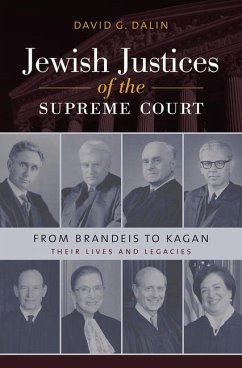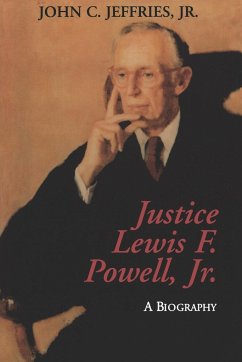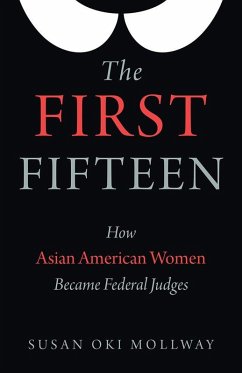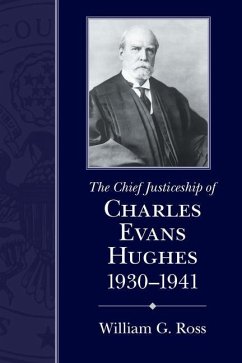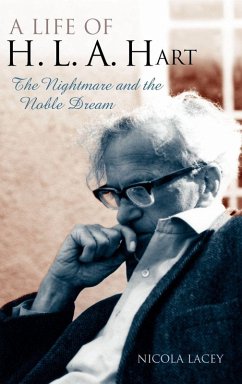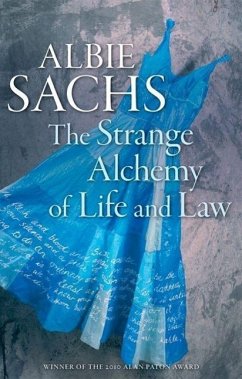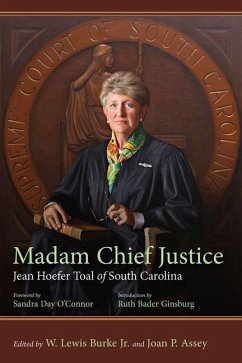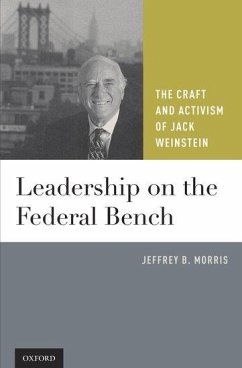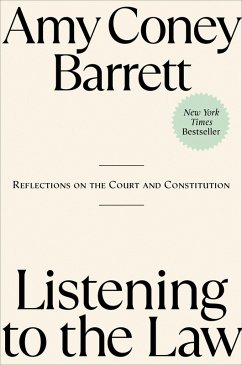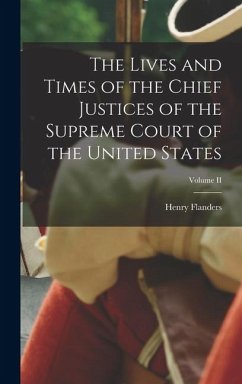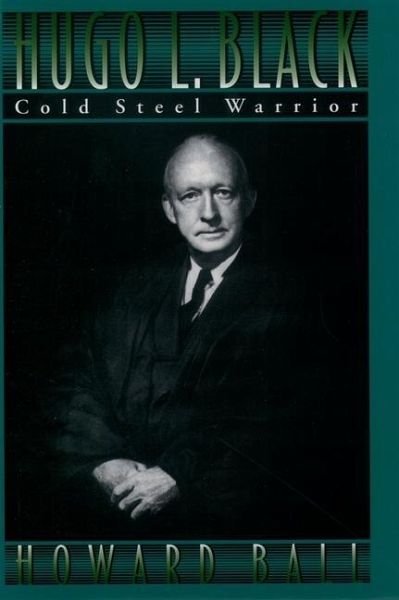
Hugo L. Black
Cold Steel Warrior

PAYBACK Punkte
28 °P sammeln!
In Hugo L. Black: Cold Steel Warrior, distinguished writer Howard Ball draws from Black's extensive files in the Library of Congress and on interviews with his colleagues on the Court, his law clerks, and his family to illuminate the enigmatic career of a man who became one of the twentieth century's most vigilant defenders of freedoms and liberty. Ball's examination of Black's life reveals a consummate politician who kept, in a safe beside his desk, the names, addresses, and backgrounds of all those who gave Black support from the time he ran for the county solicitor's job in Jefferson County...
In Hugo L. Black: Cold Steel Warrior, distinguished writer Howard Ball draws from Black's extensive files in the Library of Congress and on interviews with his colleagues on the Court, his law clerks, and his family to illuminate the enigmatic career of a man who became one of the twentieth century's most vigilant defenders of freedoms and liberty. Ball's examination of Black's life reveals a consummate politician who kept, in a safe beside his desk, the names, addresses, and backgrounds of all those who gave Black support from the time he ran for the county solicitor's job in Jefferson County, Alabama, through his two terms as a U.S. Senator. A fervent New Deal advocate, Black lent his support to F.D.R's court packing plan, and was one of the few who stood with the President until the measure's defeat in 1937. Less than one month later, F.D.R. rewarded Black by nominating him to the Supreme Court. Soon after Black's confirmation by the Senate, the story of his Klan membership spread across the nation, prompting Time magazine to write that "Hugo won't have to buy a robe, he can dye his white one black". One of Black's early opinions for the Court, however, changed most of the negative opinion about him. Writing for the majority in the critically important 1940 case of Chambers v. Florida, Black and his colleagues overturned the convictions of four African-American men unjustly convicted of murder. Chambers was probably the opinion Black was fondest of, and whenever he reread it, tears came to his eyes. In addition to Black's political and legal career, Ball captures some of the great legal battles on the Court, involving Black and his brethren, men such as Earl Warren, ThurgoodMarshall, Robert Jackson, Abe Fortas, Felix Frankfurter, William O. Douglas, John M. Harlan II, and William J. Brennan.




